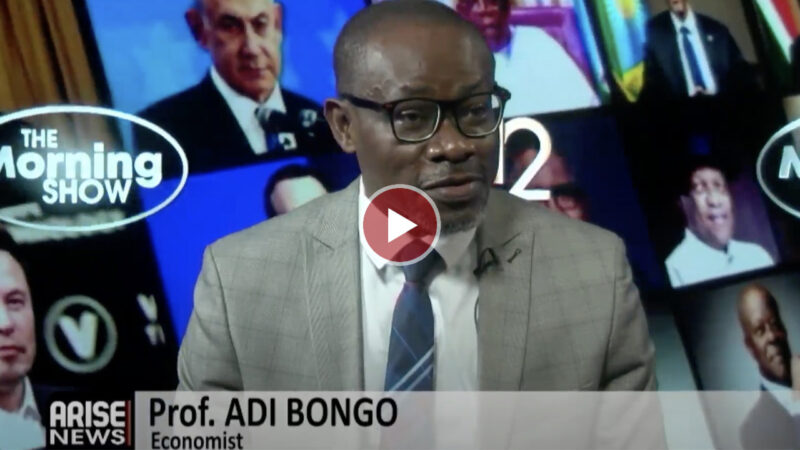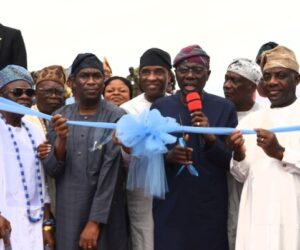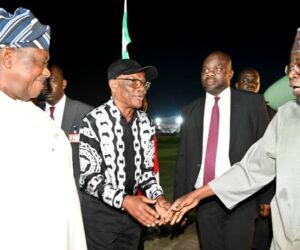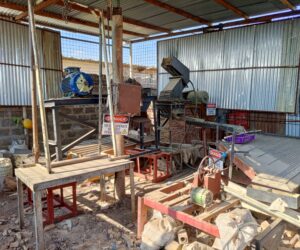
Economist, Professor Adi Bongo, has urged Nigerians to exercise both caution and patience in evaluating President Bola Tinubu’s claims that his administration has successfully met the 2025 revenue target. While acknowledging improvements in non-oil revenue and oil production, warning that borrowing and inflationary pressures still pose serious challenges to the economy.
Bongo on an interview with ARISE NEWS on Thursday, framed his intervention around the president’s latest fiscal pronouncements. “If he says that we’ve met the revenue target for 2025, I would believe that he’s talking about the budget for 2025, which is about ₦54.9 trillion. And then the federal government’s component of revenue there is about ₦27.5 trillion.”
He stated that if Tinubu’s statement is accurate, then the administration would indeed be in a stronger position to prosecute the 2025 budget. However, he noted the uncertainty surrounding the government’s data. “The devil is in the details. We don’t know what the numbers really are. He just said this,” Bongo remarked.
Bongo acknowledged that reports from government agencies suggest a notable rise in non-oil revenues and oil output. “Non-oil revenue has increased by about 20 percent, and oil production also has increased significantly, up to 10 percent from 1.4 million barrels to about 1.8 million currently. Then that’s something significant,” he noted. These gains, he argued, could explain why the president appears confident about fiscal stability.
He stressed that improved revenues alone mean little if they do not translate into better living standards. “It’s not enough to meet revenue targets. The big question is, how does this translate to benefits for Nigerians?” he asked.
Bongo further explained that reduced government borrowing could provide much-needed breathing space for the private sector. “If we see interest rates beginning to drop going forward, then we know the president is actually right. But if interest rates remain where they are, then we want to see a rise in lending to the private sector before we can believe what the president is saying,” he cautioned.
Despite Tinubu’s recent assurance that the government would not seek further loans, Bongo pointed to contrary evidence. “I read that he will no longer be borrowing. So, let’s hold him there, but the Debt Management Office is still actively borrowing through the bond market,” he observed, noting that Nigeria recently issued fresh bonds to finance obligations.
He also addressed the government’s fiscal consolidation efforts. By his account, budget deficits have narrowed in recent years, but challenges remain. “Deficit in 2020 was 5 percent. In 2021, it climbed to more than 6 percent. Then it started going down to 4.4 percent, and then last year was 3 percent. That tells you that somehow they’ve been managing the fiscal consolidation.”
Still, he emphasised that the broader economic picture remains fragile. Inflation is running well above official targets, oil production has not consistently reached projected levels, and the naira exchange rate has not stabilised at the government’s assumed level of ₦1,500 per dollar. “We are not where we used to be. But are we where we should be? No, we are not.”
Erizia Rubyjeana
Follow us on:








